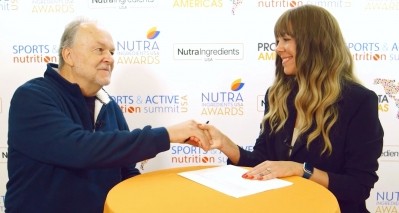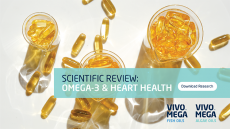SSW education session to spotlight ‘historic’ BAPP SOP

The ABC-AHP-NCNPR Botanical Adulterants Prevention Program (BAPP) Best Practices Standardized Operating Procedure (SOP) for the Disposal / Destruction of Irreparably Defective Articles (IDAs) will be the focus of a session at SupplySide West in Las Vegas on October 25 from 4:30-5:00pm PDT at the SupplySide Stage (booth #5670).
Jon Benninger, Vice President & Market Leader, SupplySide will moderate the 30-minute session featuring Mark Blumenthal, Founder & Executive Director of the American Botanical Council and founder of BAPP, Stefan Gafner, PhD, RPh, ABC’s Chief Science Officer and the Director of BAPP, and Michael Levin, Founder of Health Business Strategies LL and the principal author of the BAPP SOP.
The BAPP SOP, which received the 2023 NutraIngredients-USA Award for Industry Initiative of the Year, was hailed as “historic” by Loren Israelsen, president of the United Natural Products Alliance (UNPA), when it was first released at the end of 2022.
Burn it, don’t return it
The SOP is an industry self-regulatory tool to assist responsible botanical industry companies in removing ingredients from the global botanical supply chains if deemed to be an “irreparably defective article” (IDA) by scientifically valid analytical laboratory testing.
The SOP is applicable to botanical/herbal ingredients and non-botanical ingredients — any ingredient that might be subject to accidental or intentional adulteration or accidental contamination, according to a release.
In some cases of adulteration or contamination, the ingredient can be lawfully remediated or reconditioned to a level of quality that is deemed acceptable by relevant federal regulations. However, in other cases, due to the type of adulteration and/or the extent of contamination, some materials cannot be adequately reconditioned, thus requiring its being considered irreparable.
In the US and many other countries, good manufacturing practices (GMPs) regulations require that ingredients must be tested for identity and purity — among other requirements — and, if they do not meet appropriate specifications, they generally cannot be released into manufacturing (for the production of consumer products).
However, there’s a gap in the GMPs: They don’t include guidance regarding what the buyer should do with rejected material that does not qualify for reconditioning by either the buyer, the seller, or a third party. Such irreparably defective materials are the subject of this SOP.
When laboratory testing approved by both buyer and seller concludes that an ingredient is irreparably defective, the buyer (e.g., a dietary supplement, food, cosmetic, or OTC drug manufacturer) should not simply return it to the seller (e.g., an ingredient supplier). Instead, as detailed in the SOP, it must be destroyed to prevent its resale into commerce.
Notification of certified, lawful destruction shared between the parties is an essential part of this agreement; it evidences compliance with the objectives of this consumer protection initiative.
Work on the SOP was announced in 2018 and underwent an extensive process of public comment that included recommendations from various industry stakeholders, food and drug law attorneys, analytical chemists, and other botanical, supplement, and regulatory experts.
The SupplySide West session will walk attendees through the SOP, and explain how to implement it, including utilizing supply-chain contracts and agreements. Click HERE for more information.
















